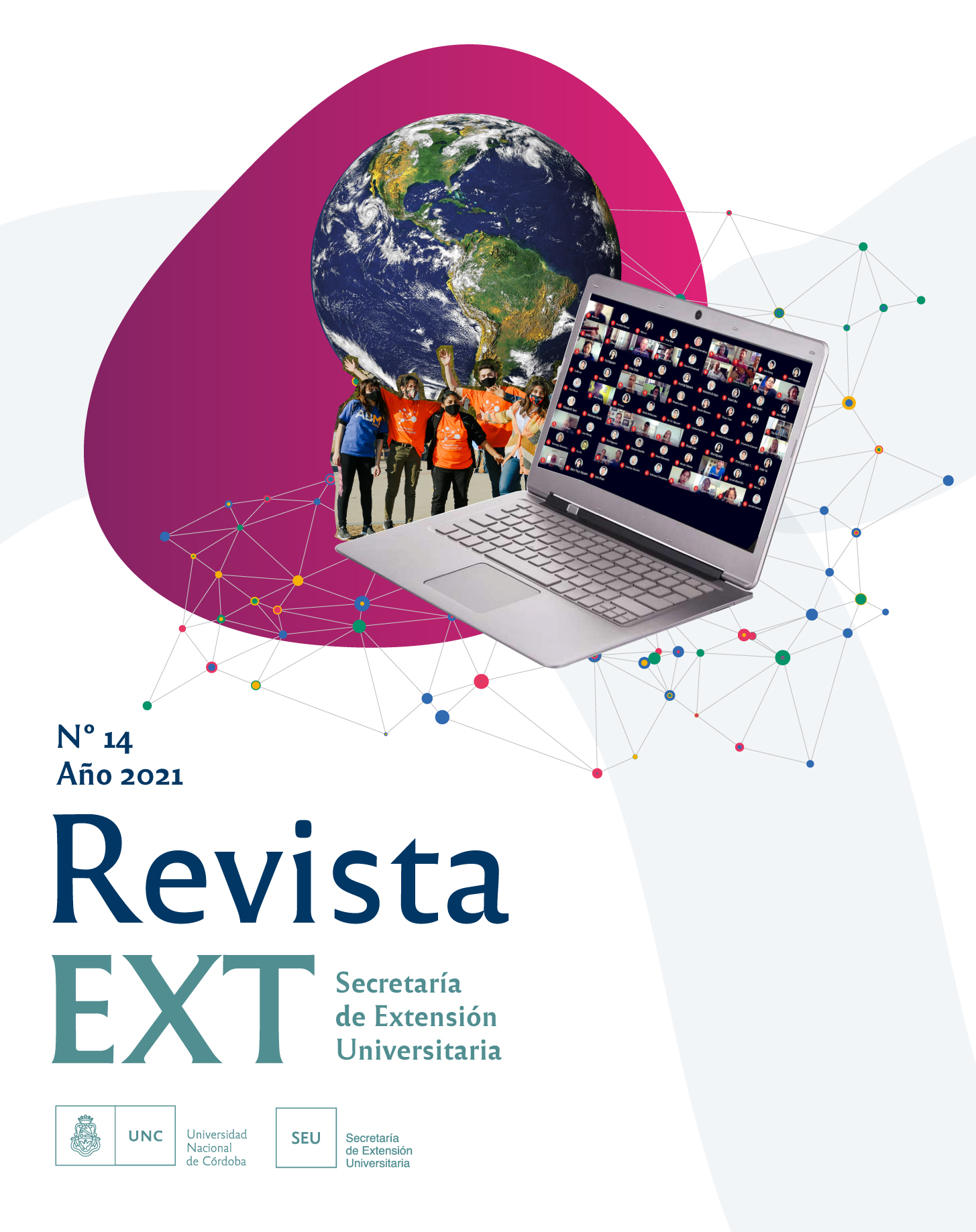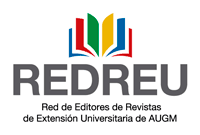Coordinando desde la virtualidad: Proyecto “Apoyo Escolar Virtual”
Keywords:
extensión; virtual education; health emergencyAbstract
This article describes the experience of student assistants from the National University of Córdoba, during the second semester of 2020, who worked as collaborators, together with student volunteers and graduates, in the general coordination of the Virtual School Support project organized by the program Puntos de Extensión. This project adapted human and technological resources as a result of the measures of social, preventive and compulsory isolation in order to bring these resources closer to one of the most affected areas, the educational system. The project was based on another similar one carried out in another non-university space for children and adolescents in Villa 31 in Buenos Aires. In Córdoba, the leaders of some neighborhoods, sports and community centers that function as nodal points were summoned due to their nexus with the community. These are Casa Macuca, Villa El Libertador, El Polito, Villa Boedo, Club Maipú, Club Belgrano and Escuela Madre María Tránsito. The article describes the difficulties of the virtual adaptation of the communication and flow of virtual support activities. This has repercussions on the perception of those who took part, as well as on the dynamics of the activity. Virtual school support presents advantages and disadvantages related to the preservation of the bond between the University and the community; as well as the social representations of those who participated in the activity.
Downloads
References
Bajtín, M. (2015). Yo también soy (fragmentos sobre el otro). Reseñas CeLeHis, 4.
https://fh.mdp.edu.ar/revistas/index.php/rescelehis/article/download/1272/1302
Gezmet, S. (2015). La extensión en la formación del profesional Universitario. Compromiso Ético. En M. Barrientos (Ed.), Compendio Bibliográfico (p. 44). Secretaría de Extensión Universitaria.
Diaz, C. (2015). El posible diálogo entre saberes académicos y saberes no académicos. Un aporte desde la sociología de la cultura. En M. Barrientos (Ed.), Compendio Bibliográfico (p. 58). Secretaría de Extensión Universitaria. https://ffyh.unc.edu.ar/extension/wp-content/uploads/sites/2/2018/08/Compendio-Bibliografico-2015-asignatura-extension-universitaria.pdf
González Rey, F. (2008). Subjetividad social, sujeto y representaciones sociales. Diversitas, 4(2), 225-243. Recuperado el 30 de julio de 2021, de http://pepsic.bvsalud.org/pdf/diver/v4n2/v4n2a02.pdf
Kuri Pineda, E. (2013). Representaciones y significados en la relación espacio-sociedad: Una reflexión teórica. Sociológica (México), 28(78), 69-98.
Negro M., y Gómez J. (2018). La extensión universitaria argentina desde la promoción y evaluación estatal. +E: Revista De Extensión Universitaria, 7(7), 46-59. https://doi.org/10.14409/extension.v0i7.7050
Sanchéz Dagum, M. (2013). Voluntariado y responsabilidad social. https://rdu.unc.edu.ar/handle/11086/5430
Torres Carrillo, A. (2009). Acción colectiva y subjetividad. Un balance desde los estudios sociales. Revista Folios, (30), 51-74. [fecha de Consulta 30 de Julio de 2021]. ISSN: 0123-4870. Disponible en: https://www.redalyc.org/articulo.oa?id=345941360004
Downloads
Published
Issue
Section
License

This work is licensed under a Creative Commons Attribution-NonCommercial-ShareAlike 4.0 International License.
Aquellos autores/as que tengan publicaciones con esta revista, aceptan los términos siguientes:
- Los autores/as conservarán sus derechos de autor y garantizarán a la revista el derecho de primera publicación de su obra, el cuál estará simultáneamente sujeto a la Licencia de reconocimiento de Creative Commons que permite a terceros compartir la obra siempre que se indique su autor y su primera publicación esta revista.
- Los autores/as podrán adoptar otros acuerdos de licencia no exclusiva de distribución de la versión de la obra publicada (p. ej.: depositarla en un archivo telemático institucional o publicarla en un volumen monográfico) siempre que se indique la publicación inicial en esta revista.
- Se permite y recomienda a los autores/as difundir su obra a través de Internet (p. ej.: en archivos telemáticos institucionales o en su página web) después del proceso de publicación, lo cual puede producir intercambios interesantes y aumentar las citas de la obra publicada. (Véase El efecto del acceso abierto).





